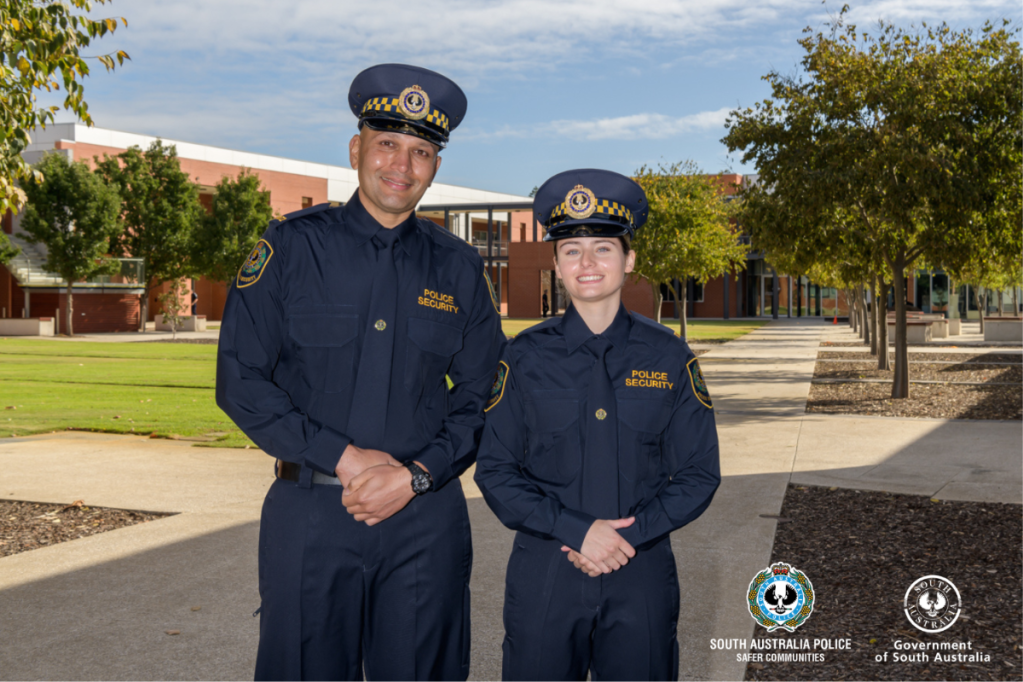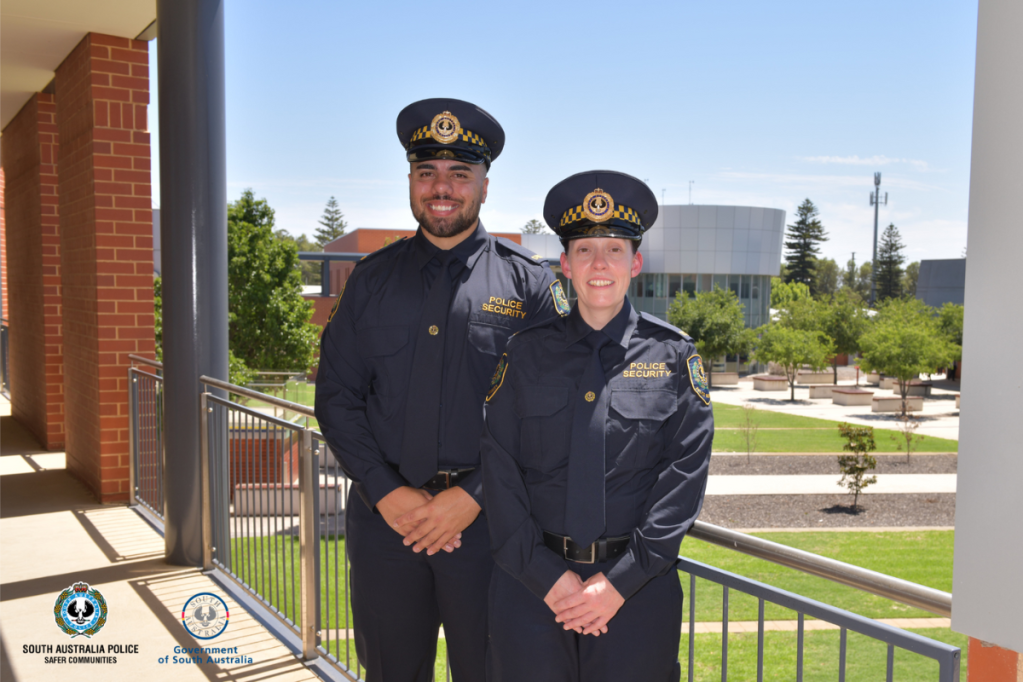They’re the quiet force behind SA’s safety — guarding key sites, supporting frontline police and managing complex operations around the clock. Find out more about the role of a Police Security Officer.
Think Police Security Officers (PSOs) just guard buildings? Emily Forbes’s career has taken her from locking down COVID medi-hotels to overseeing detainee transfers.
Now, at just 28, she’s running a 24/7 team as a Sergeant PSO. It’s a long way from where she started. Straight out of school, Emily was working in retail
while she figured out her next step. With family and friends in policing, she was curious about a career in security and approached the police academy to learn more.
“They asked me if I’d heard of Police Security Officers – and I hadn’t,” she says. “So, I looked into it, and once I saw what the role involved, I realised it was exactly what I was looking for.”

What PSOs actually do
Ask Emily what PSOs do, and you won’t get a short answer.
“We monitor alarms at government schools, look after critical infrastructure like Parliament House and Government House, and provide security for the Premier and Governor at events,” she says.
“We also do prisoner conveyances, mental health detainee escorts, hospital guards, and crime scene guards. There’s even a section monitoring all the CCTV in the Adelaide CBD. They can pick something up on camera and get a patrol to respond.”
It’s frontline work, but most people have no idea it’s happening around them.
“Every day is different for us,” Emily says. “There’s variety, there’s challenge, and it’s definitely not boring.”
Training and focus
Like police officers, PSOs possess legislated authorities, carry tactical and safety equipment, and are trained in police operational safety.
But the difference is the focus.
“Police spend nine months at the academy, compared to 13 weeks for PSOs,” Emily says. “We still do all the same operational safety training, but our role is just more confined to that security space.”
That shorter training makes PSOs a great fit if you want real-world responsibility without months buried in textbooks.
Respect and expansion
In recent years, PSOs have taken on expanded responsibilities – including custody management in metropolitan facilities – freeing up sworn police for frontline duties.
And the role’s only getting bigger, with $24.6 million a year in state government funding creating 189 new positions and broadening the role.
“Police see the value in what we do. When we take over at the hospital or in the cells, it frees them up to get back on the road – and they really respect that.”
“We’re one big branch of SAPOL (SA Police). One big family.”

Stepping up as sergeant
Emily has worked across different parts of the branch – from school patrols to critical infrastructure sites, medi-hotels during COVID, and now custody management.
“I’ve got about eight to ten PSOs to manage on a 24/7 roster,” she says. “Some work in the cells, others are out on patrols doing prisoner conveyances and hospital guards.”
“It’s a lot of responsibility, but I’ve always liked leadership roles. Even back playing netball at school, I wanted to be the captain. Winning that permanent promotion has probably been the most rewarding moment of my career so far.”
Every day is different
“You can have a really difficult detainee one day and an absolutely lovely one the next,” Emily says. “That’s also what I love about it – every day is different.”
Sure, it has its tough days, but the pay-off is huge.
“During COVID, I worked in the medi-hotels and on the Victorian border. These days we’re part of Operation Nomad, patrolling fire danger areas to prevent bushfire arson. Just having that presence and visibility is rewarding.”
For Emily, that’s what makes being a PSO a truly frontline role.
“Knowing you’ve taken pressure off police so they can get back on the road, or that your presence might stop a bushfire from being lit – that feels pretty rewarding.
“I wouldn’t have been doing any of this if I’d stayed in retail. Becoming a PSO has given me so many opportunities I never imagined when I left school.”

A growing role across SA
The state government is also investing $29.6 million to expand the PSO model into regional South Australia
“It’ll be a great opportunity for people who live in the country and don’t want to commit to nine months at the academy,” Emily says.
“Being a PSO is a way to be part of SAPOL, to get an insight into policing, and for some people it becomes their career for life.”
A job for everyone
So what would she say to someone thinking about applying?
“I’d say give it a go. There are so many different areas you can work in, and now with the rank structure you can make a real career out of it.
“Why not? You’ve got nothing to lose.”
Find out more about becoming a Police Security Officer here, or register here for a free information session.

















